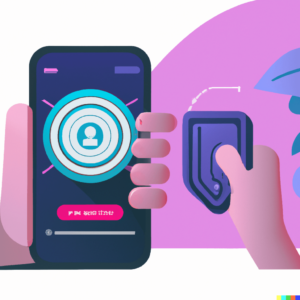
By Aziz Vora, Director of Marketing
The digital marketing landscape has undergone tremendous changes over the past decade, with new technologies, platforms, and tools emerging constantly. The advent of Web 2.0 brought about a new era of user-generated content and social media, which changed the way businesses engaged with their audiences. However, even with the emergence of new technologies and platforms, the underlying structure of the internet remained the same: a centralized network controlled by a handful of powerful companies.
Web 3.0, on the other hand, is a decentralized web that uses blockchain technology to create a more transparent, secure, and democratized internet. This new iteration of the web promises to completely transform the way businesses interact with their customers, offering greater personalization, security, and transparency than ever before. With Web 3.0, businesses can create decentralized applications like social media platforms, use smart contracts, and even issue their own tokens, opening a whole new world of possibilities for digital marketing.
One of the main reasons why Web 3.0 is better than Web 2.0 is because it offers greater transparency. With Web 2.0, businesses have to rely on third-party platforms to reach their audiences, which often means sacrificing control and transparency. With Web 3.0, businesses can create their own decentralized applications and use smart contracts to interact with their customers directly, without the need for intermediaries. This not only gives businesses greater control over their marketing campaigns, but also increases transparency and builds trust with their audiences.
Another advantage of Web 3.0 is its focus on security. With Web 2.0, security was always a concern, with many companies experiencing data breaches and cyber-attacks. This not only put customers at risk, but also damaged the reputation of the businesses involved. With Web 3.0, security is built into the core of the system, making it much more difficult for hackers to breach the network. By using blockchain technology, businesses can ensure that their customer data is secure and protected, building trust and confidence with their audiences.
Web 3.0 for digital marketing offers unique benefits over Web 2.0 because it helps ensure more accurate personalization over time. With Web 2.0 marketing, businesses rely heavily on user-generated content and social media to engage with their audiences, with preferences rarely—if ever—being updated. While this approach is effective in some ways, personalization becomes less and less accurate as people in their audience change their preferences. With Web 3.0 for digital marketing, businesses can use decentralized applications to create more accurate personalized, targeted marketing campaigns that stand the test of time. Businesses can still use blockchain technology to create unique experiences for each individual customer, based on their preferences and behavior, like in Web 2.0. Giving their audiences clear ways to update and change the preferences they share with brands will transform the effectiveness of campaigns by ensuring ads are served to the most relevant audience—for example, automotive companies can reach people who are car shopping, but immediately stop serving ads once the consumer has bought their next vehicle.
As Web 3.0 continues to develop and evolve, businesses are starting to experiment with this new technology in their marketing strategies. Brands like Nike and Starbucks have already started exploring the possibilities of Web 3.0, using blockchain technology to create more secure, transparent, and relevant experiences for their customers. Nike has launched its own digital marketplace, Nike CryptoKicks, which uses blockchain technology to verify the authenticity of limited-edition sneakers. Starbucks has partnered with Microsoft to create a blockchain-based supply chain tracking system for its coffee beans, allowing customers to trace the journey of their coffee from bean to cup; more recently, they launched Starbucks Odyssey to take advantage of blockchain technology to power their loyalty and rewards program. These examples demonstrate the potential of Web 3.0 to completely transform the way that businesses interact with their customers.
Below, we explore the different value propositions that Web 3.0 will offer for digital marketing via technological advances like decentralized applications, smart contracts, and tokens. We’ll also dive deeper into the ways that brands like Nike and Starbucks are currently using Web 3.0 in their marketing strategies, and how other businesses can follow their lead. By the end of this post, you’ll have a better understanding of how Web 3.0 will shape the future of digital marketing, and what information you need to know to create the most effective campaigns.
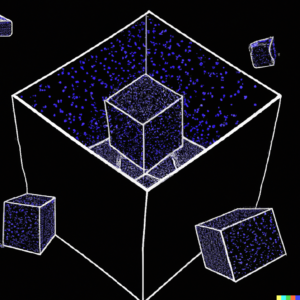
What is Web 3.0?
Before we dive into the impact of Web 3.0 on digital marketing, let’s first define what Web 3.0 is. Web 3.0, also known as the decentralized web, is the next iteration of the internet that promises to be more decentralized, secure, and transparent than its predecessor. Web 3.0 aims to shift power and control from centralized entities like governments and corporations back to individuals by leveraging technologies like blockchain, smart contracts, and decentralized applications (dApps).
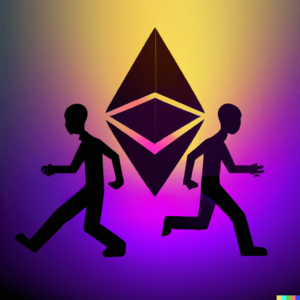
Why is Web 3.0 better than Web 2.0 for marketing?
Web 2.0 marketing, which covers the current digital marketing status quo, is characterized by ads, social media, and search engine marketing. While these tactics have been successful in their own right, they have several limitations that Web 3.0 marketing aims to address. One of the primary limitations of Web 2.0 marketing is the lack of control that users have over their data. With Web 3.0, users have complete ownership and control over their data, which provides a more secure and transparent environment for digital marketing. Another limitation of Web 2.0 marketing is the lack of accuracy around personalization and engagement in the long run. While businesses can use data to personalize ads and offers, the experience is often one-dimensional and assume that consumers’ preferences never change. With Web 3.0, businesses can create personalized experiences for each user by leveraging dApps, smart contracts, and tokens, with real-time updates from users who have, for example, exited a purchasing funnel or whose preferences are changing. This will lead to greater engagement and interaction, as users will have more control over their experience, leading to stronger relevance in served ads and stronger feelings of connection with the brand.
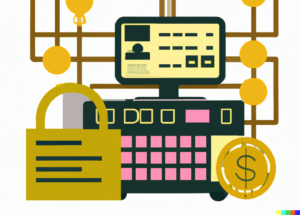
Value Propositions of Web 3.0 for Digital Marketing
Now let’s explore some of the value propositions that Web 3.0 will offer for digital marketing:
- Smart contracts: Smart contracts are self-executing contracts that automate the terms of an agreement between buyer and seller. They’re built on top of blockchain technology and provide a secure and transparent way to transact online. With Web 3.0, businesses can leverage smart contracts to streamline their operations and provide greater trust and confidence in digital transactions. One of the key benefits of smart contracts is that they eliminate the need for intermediaries. In traditional transactions, intermediaries such as banks, brokers, and lawyers are often needed to facilitate the transaction and ensure that both parties meet their obligations. With smart contracts, these intermediaries are no longer necessary. Instead, the terms of the contract are coded into the blockchain and executed automatically when the conditions are met. This makes transactions faster, cheaper, and more efficient. Another benefit of smart contracts is that they’re transparent and tamper-proof. Once a contract is executed, it’s recorded on the blockchain and can’t be altered or deleted. This provides an audit trail that can be used to verify the authenticity of the transaction. By leveraging smart contracts, businesses can provide a more secure and trustworthy way to transact online, which can increase customer confidence and loyalty.
- Decentralized applications (dApps): With Web 3.0, businesses can create decentralized applications that provide a custom experience for their customers. These dApps are built on top of blockchain technology, which offers several advantages over traditional applications. One of the key benefits is increased security and transparency. Transactions made through dApps are verified and recorded on the blockchain, which is an immutable public ledger that can’t be altered or tampered with. This makes dApps a more secure and trustworthy way to transact online. Another benefit of dApps is that they offer a high degree of customization. Businesses can create bespoke applications that provide unique functionality tailored to their customers’ needs. For example, a fashion brand could create a dApp that allows customers to design and purchase custom clothing. This would provide an up-to-date personalized experience that goes beyond what traditional e-commerce platforms can offer by simplifying what information consumers share with brands and when. By leveraging dApps, businesses can also provide a more engaging and immersive experience for their customers that can increase loyalty and retention.
- Tokens: Web 3.0 will allow businesses to create their own tokens that can be used for loyalty programs and rewards systems. Tokens are digital assets that are built on top of blockchain technology and can represent anything of value, such as points, rewards, or discounts. One of the key benefits of tokens is that they provide a more secure and transparent way to manage loyalty programs. In traditional loyalty programs, customers earn points or rewards that are managed by the business. However, these points can be subject to fraud, manipulation, or loss. With tokens, loyalty programs are managed on the blockchain, which provides a secure and transparent way to manage rewards. Customers can earn tokens by engaging with the brand, such as by making purchases, referring friends, or completing surveys. These tokens can then be redeemed for rewards or discounts, providing an incentive for customers to continue engaging with the brand. By leveraging tokens, businesses can provide a more engaging and rewarding experience for their customers that can increase loyalty and retention.
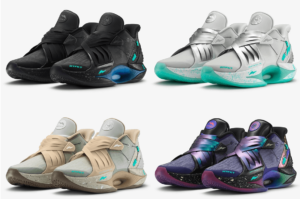
Examples of brands using Web 3.0
Several forward-thinking brands have already started experimenting with Web 3.0 technologies to enhance their digital marketing efforts. These brands understand that the future of marketing lies in building deeper and more personalized relationships with customers. Here are two examples of how brands are using Web 3.0 to achieve this:
Nike:
Nike is one of the first major brands to explore the potential of blockchain technology in its digital marketing efforts. The company launched its own digital marketplace, Nike CryptoKicks, which uses blockchain technology to verify the authenticity of limited-edition sneakers. Customers can purchase virtual shoes that are backed by a non-fungible token (NFT), which guarantees the authenticity and ownership of the item. This creates a more secure and transparent environment for sneaker collectors, which builds trust and loyalty with the brand. In December 2022, the brand announced the launch of IRL versions of their much-hyped CryptoKicks, powering loyalty among early Web 3.0 adopters.
Building off that platform’s full-circle success, in 2022 Nike launched Swoosh, a Web 3.0 marketing platform that uses blockchain to power co-creation initiatives that strengthen the relationships between Nike and its most dedicated fans, whether Web 3.0 native or not, by giving consumers the power to design their own official Nike digital collectibles.
By leveraging Web 3.0 in a variety of different ways, Nike is able to create a more personalized and engaging experience for its customers, while also protecting its brand from counterfeiters.
Nike’s use of Web 3.0 technology extends even beyond their Nike CryptoKicks and Swoosh platforms. The company is also exploring the use of NFTs to create digital experiences for their customers. For example, they recently released a limited-edition NFT collection that included 666 pairs of virtual shoes that could be used in the online game “Decentraland.” This not only creates a new revenue stream for the company, but it also engages with their tech-savvy customers in a new and exciting way. Nike is also working on developing an app that will allow customers to scan their sneakers and verify their authenticity using blockchain technology, as well as using blockchain to track the origins of its raw materials.
Starbucks:
Starbucks is known for its commitment to ethical and sustainable sourcing of coffee beans. To further reinforce its values and build trust with its customers, the company has partnered with Microsoft to create a blockchain-based supply chain tracking system for its coffee beans. This system allows customers to trace the journey of their coffee from bean to cup, which provides greater transparency and accountability. By leveraging Web 3.0 technology, Starbucks is able to create a more personalized and engaging experience for its customers, while also demonstrating its commitment to sustainability and ethical sourcing practices. This builds trust and loyalty with customers who care about the environmental and social impact of their purchases. They are also exploring the use of blockchain to track its coffee from farm to cup, as well as developing a cryptocurrency payment app for its customers.
More recently, the brand has launched a loyalty program built on the blockchain, called Starbucks Odyssey. The program relies on blockchain to add liquidity to rewards earned in the app. By allowing consumers to trade and sell their rewards on a white-label secondary marketplace, Starbucks has improved usage of its rewards program while protecting consumers against scams and fakes. Additionally, the Web 3.0 loyalty marketing program is able to connect with other enterprise loyalty programs built on the blockchain. Starbucks announced a partnership with Delta Airlines that builds an entire loyalty ecosystem to bring customers new ways to earn and spend rewards. The partnership is made possible by the use of decentralized blockchain technology, which each brand’s rewards program uses. Blockchain and Web 3.0 represent powerful use cases for brands who wish to work together to broaden their appeal to new target audiences.

Other Brands using Web 3.0 for digital marketing include:
Starbucks is not the only coffee company using Web 3.0 to enhance their digital marketing efforts. Farmer Connect, a Swiss-based startup, has partnered with several coffee brands, including Nespresso and Beyers Koffie, to create a blockchain-based coffee tracking system. This system allows customers to track the entire journey of their coffee beans, from the farm to their cup, ensuring transparency and sustainability.
Other brands are also exploring the potential of Web 3.0 marketing. In the gaming industry, Ubisoft, the creator of popular games such as Assassin’s Creed and Far Cry, has partnered with blockchain-based platform Ultra to create a more direct relationship with their players. This platform allows Ubisoft to create their own storefront where players can purchase games and in-game items directly from the publisher, bypassing traditional digital distribution platforms.
Luxury fashion brand Gucci has partnered with Arianee, a decentralized platform for luxury goods, to create digital certificates of authenticity for their products. This not only provides a more secure and transparent way to verify the authenticity of their products, but also creates a unique digital experience for their customers. The Italian luxury fashion brand’s use of blockchain technology also extends to creating a more transparent and sustainable supply chain. Customers can track the journey of a product from the factory to the store, ensuring that the materials used in the production process are ethically sourced.
Unilever, the consumer goods company, is another brand that is leveraging the power of blockchain technology for its tea products. The company’s blockchain solution tracks the supply chain of its tea products, ensuring that they are sustainably and ethically sourced. This level of transparency is crucial for Unilever, as it allows the company to build trust and loyalty with its customers, who are increasingly demanding sustainable and ethically sourced products.
Coca-Cola is exploring the use of non-fungible tokens (NFTs) to create collectible digital assets. The company plans to leverage the power of blockchain technology to ensure the authenticity of these virtual assets. In addition to virtual vending machines, Coca-Cola is also considering the use of NFTs for other digital assets, such as virtual wearables and gaming assets.
Louis Vuitton, the luxury clothing brand, used blockchain to build Louis: The Game, a decentralized App (dApp) that powered awareness among a new generation of Louis Vuitton fans. Launched in 2021 and updated in 2022, the game rewarded players with NFTs, each of which spotlighted a different aspect of the brand’s rich history. A special NFT lottery gave collectors the opportunity to win exclusive game inspired NFTs for use as profile pictures (PFP), in line with contemporaneous trends in the Web 3.0 space.
More recently, luxury fashion brand Ralph Lauren has begun accepting crypto as a form of payment at one of its store and using Web 3.0 to send private party invitations. The high-end clothier is turning to NFTs built on the Ethereum blockchain to verify invitations to ensure attendee exclusivity and authenticity.
The applications of Web 3.0 go beyond luxury. Gala Music—the world’s first decentralized record label—recently announced that they will be releasing a never-before-heard version of “Let’s Dance” by David Bowie as a limited-edition music NFT. Users will be able to choose what they pay for access to the song. The record label will be donating proceeds from primary sales to the charity MusiCares, a move generating positive PR and motivating higher sales prices.
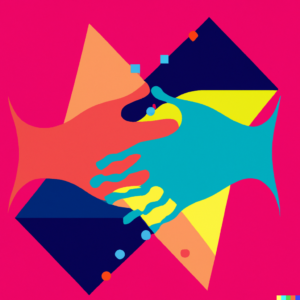
Conclusion
These examples demonstrate how Web 3.0 technologies can enable brands to create deeper and more personalized relationships with their customers. By leveraging blockchain technology and the programmable utilities behind NFTs, businesses can create a more secure and transparent environment for transactions, which builds trust and loyalty with their customers. By creating decentralized applications, businesses can provide a custom experience for their customers, which enhances engagement and loyalty. Finally, by creating their own tokens, businesses can create more effective loyalty programs and rewards systems, which incentivize customer engagement and loyalty.
Web 3.0 is the next iteration of the web that promises to transform the way businesses interact with their customers. With greater decentralization, security, and transparency, Web 3.0 will offer several value propositions for digital marketing, including decentralized applications, smart contracts, and tokens. Forward-thinking brands like Nike and Starbucks have already started experimenting with Web 3.0 technologies to enhance their digital marketing efforts and build trust and loyalty with their customers. As more businesses adopt Web 3.0, we can expect to see a significant shift in the way that digital marketing is done, with improved transparency and more accurate personalization, leading to better engagement.
